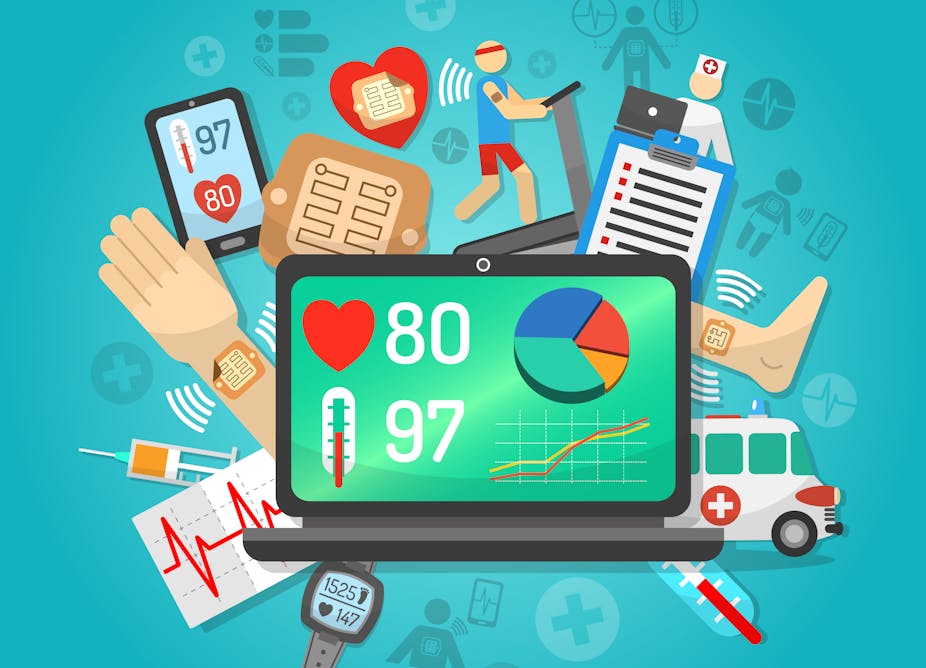The NHS has been keen to use the proliferation of smartphones as a way to encourage people to maintain their health through smartphone apps. There are more than 97,000 health-related apps available for smartphones, so NHS chiefs correctly realised that someone had to vet the good from the bad. Since 2013 the NHS has run a library of 220 approved, health-related apps that it encourages us to use.
Or rather it did, until it was closed after some recent negative publicity, including some studies that cast doubt on whether many of the apps had any beneficial effects at all and others that revealed that the apps were leaking sensitive personal data to all and sundry.
While it was only a two-year pilot, the review criteria used by the library to grade the apps was described as “weak” and of “low standard”, leading to serious concerns over the quality of apps.
A library full of problems
A six-month research study of 79 apps from the library certified as clinically safe and trustworthy found that 66% of them also sent information that could identify the user unencrypted over the internet, while four apps (5%) sent both identifying data and health data without any encryption. Clearly this is a serious risk to the user’s privacy and security.
Back in 2014 the privacy campaign group MedConfidential identified several NHS-approved apps that didn’t even meet the basic review criteria set by the NHS.
Another study compared methods used by apps aimed at changing behaviour (such as stopping smoking) to those endorsed by the National Institute for Health and Care Excellence. While all apps used a recognised behaviour change technique, they focused more on starting the behaviour change and less on maintaining the new behaviour, meaning the apps were of questionable use over the long term – the role they’d be expected to play. Other apps in the NHS App Library employ techniques such as NLP that have not stood up to peer review.
The app accreditation process for the NHS library is seriously deficient if apps it recommends display this range of problems. In fact a look at the apps that were available from the library and feedback from users shows that some had technical issues, including the official NHS Quit Smoking app and NHS Health and Symptom Checker. Others such as Babylon Health – which promotes private GP consultations – arguably have no place in the library at all.

Taking the right way forward
So how should the NHS tackle this mess? It can carry on regardless, leaving the business of testing and approving apps to the NHS App Library reviewing process. Clearly this hasn’t worked so far.
A second option is to allow more technically adept companies – Apple or Google, for example, who develop the two main smartphone operating systems, iOS and Android – to provide the testing and reviews. Apple already develops its HealthKit while Google offers Google Fit for consumers, and Study Kit, a participant platform for researchers running studies.
This approach might iron out technical problems, but what do Apple and Google know about clinical evidence and healthcare outcomes? How would the privacy and security of health data be handled if outsourced to a third party?
A third approach might be to combine the two, whereby the NHS works closely with one or more tech companies in order to raise the bar both technically and clinically. The challenge here is how such companies would manage to collaborate closely with such a large and complex institution as the NHS.
What’s really needed is a fourth approach, where the NHS Health Apps Library is rebuilt around a rigorous, standards-based accreditation process, and where the organisation in charge is given the resources to run it effectively. This means preventing poor quality, clinically dubious or insecure apps from entering the library in the first place and taking a proactive approach to intervening when problems arise in those it approves.
There are lessons to be learned here from the banking sector, which has had to cover similar ground to ensure its banking apps are sufficiently secure to carry out financial transactions safely. The NHS needs to build a partnership that marries health and technical expertise with a regulatory approach, establishing an expert team as an app reviewing body that comprises not just healthcare professionals but also experts from the fields of medical research, mobile technology, and security. Without this sort of rigorous approach, the NHS Health Apps Library’s approval is next to worthless.

